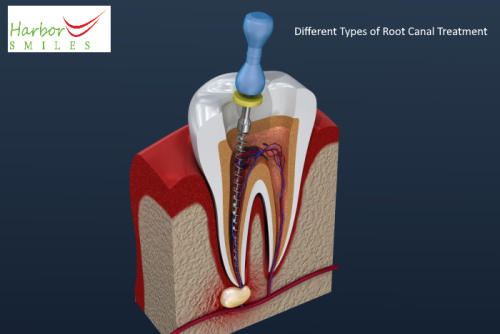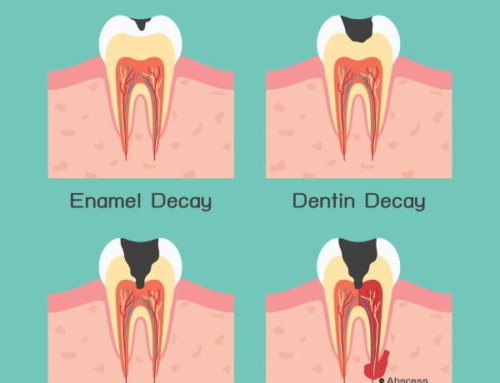 A root canal is a dental procedure that is used to treat an infection or inflammation in the root of a tooth. The most commonly used type of root canal is the non-surgical root canal.
A root canal is a dental procedure that is used to treat an infection or inflammation in the root of a tooth. The most commonly used type of root canal is the non-surgical root canal.
Table of Contents
What are the Types of Root Canals?
There are five types of root canal treatment including nonsurgical root canal treatment, apicoectomy, pulpotomy and pulpectomy, root canal retreatment, and waterlase system laser dentistry.
Non-surgical Root Canal Procedure
The most common type of root canal that preserves your natural tooth is called a nonsurgical root canal. A non-surgical root canal is painless and akin to getting an actual deep filling done. The dentist drills down further than they would during a regular filling to enter the root canal and clean it.
Apicoectomy Surgery
Apicoectomy, also known as endodontic microsurgery, is frequently referred to as a “root-end resection”. For the reason that it works on the end of the tooth’s root tip. When the normal root canal fails, an apicoectomy is recommended. An apicoectomy is a procedure that is needed to remove the tooth’s root tip and surrounding tissue. The dentist opens the gum tissue near the tooth to expose the infection. The dentist will then remove the damaged tissue along with a little portion of the root tip. A root-end filling will be used to fill the part to avoid reinfection of the root.
Pulpotomy and Pulpectomy Procedure
The infected pulp tissue is removed during both a pulpotomy and a pulpectomy. A pulpotomy involves removing a small portion of the tooth’s pulp while leaving the roots in place. Pediatric root canals are referred to in medicine as “pulpotomies.” Mineral trioxide aggregate, ferric sulfate, and calcium hydroxide are the materials that are most frequently employed in pulpotomies. A pulpotomy is required if the decay or damage just affects the tooth’s crown. Children are frequently treated with pulpectomies. A pulpectomy involves the complete removal of the infected pulp tissue’s crown and root. A pulpectomy should be performed if the tissue in both the dental crown and the tooth root is infected.
Root Canal Retreatment Procedure
The previous root canal treatment’s material must be removed during a root canal retreatment. In order to avoid infection, the root canal is cleaned once more during retreatment. Any infection in the tooth is cleaned out by the dentist, and then fresh filling materials are put in. You will require a root canal retreatment if you have recently developed dental decay or tooth damage. Two or more root canals are possible. The retreatment of a root canal takes 90 minutes.
Waterlase System Laser Dentistry
Your dentist may treat you without using a drill or scalpel using a waterlase dental laser. The painless WaterLase technology releases a laser beam that is powered by water. The WaterLase system combines water, air, and laser energy to lessen microorganisms and get rid of deterioration. Use Waterlase if you prefer a technique that is more accurate and comfortable.
Purpose of Different Types of Root Canal Procedures
There are some root canal treatments that are tailored to your comfort and oral health. Infected tissue, debris, and bacteria are removed with the WaterLase system using liquids and sound waves. Compared to a traditional root canal treatment, the WaterLase system is less intrusive. Endodontic microsurgery is required if the treatment applied to the infected tooth’s root apices was ineffective. The process of performing a root canal process includes removing the old filling material, cleaning the area, and replacing it with fresh materials.
What is the Difference Between a Non-surgical Root Canal Treatment and an Apicoectomy?
In a non-surgical root canal, the dentist drills more deeply than they would during a filling to gain access to the root canal and let it for cleaning. The dentist executes an apicoectomy by removing the tooth’s root tip and filling the root end cavity.
Is an Apicoectomy more painful than a Traditional Root Canal?
Yes, an apicoectomy is more painful since it is more intrusive than a regular root canal.
Dr. Manali Patel at Harbor Smiles is a dentist who specializes in root canal treatment. Dr. Manali Patel looks forward to restoring the health of your teeth.

